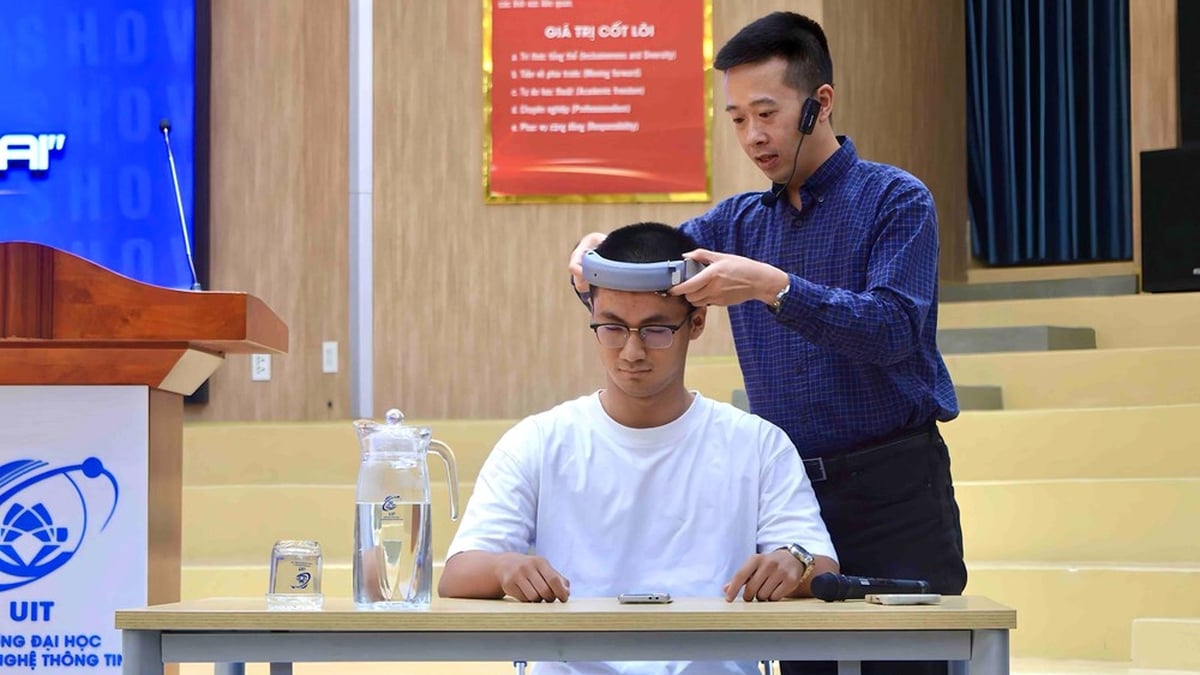It is known that you have just had a business trip to Japan to learn about the development practices of Vietnamese technology enterprises. According to your observations, do Vietnamese enterprises have many opportunities to develop in the "Land of Cherry Blossoms"?
Dr. Nguyen Thanh Tuyen: Japan is a giant information technology market with a scale of 455.7 billion USD in 2023, expected to increase to 480 billion USD in 2028.
However, according to information from the Japan Information Technology Association (JISA), Japan is seriously lacking in IT human resources, including software human resources, because the population is rapidly aging, while young Japanese people do not want to study IT but only like to study fields such as psychology, sociology, etc.
Japan is thirsty for IT workers more than ever. Many Japanese organizations and businesses are increasingly dependent on foreign labor to survive.
In terms of policy environment, the Japanese Government is implementing new policy improvements so that highly skilled foreign workers will be able to stay in Japan long-term and expand the occupational groups for the Specified Skilled Worker Program No. 2. After participating in the current technical intern program, foreign workers will have their technical skills and Japanese language proficiency improved so that they can move on to the next levels of the Specified Skilled Worker Program No. 1 lasting 5 years and expanding to the long-term Specified Skilled Worker Program No. 2.
On the other hand, Japanese businesses are also expecting the Government to take further steps to expand opportunities to welcome "foreign" human resources to work in many fields with serious labor shortages, including information technology.
However, a slowing economy , a weak yen and low wages have made even recent graduates reluctant to come to the world's third-largest economy.
Statistics show that the average salary in Japan has remained unchanged for 30 years. According to a report by the Organization for Economic Cooperation and Development (OECD), the average salary in Japan increased by only 3% between 2001 and 2021, much lower than the 40% in South Korea and 29% in the US during the same period.
Levels.fyi data shows that the average salary of a software engineer in Japan in 2022 is up to 23% lower than that of colleagues in Singapore and 17% lower in Seoul, South Korea.
Japan is a great opportunity for Vietnamese IT companies to fill the gap left by Chinese workers in the context of Chinese people withdrawing from the Japanese market to move back to the domestic market. Although Chinese workers still have the strength to provide services at a higher level, Vietnam is emerging as an important partner providing software solutions and information technology services in the Japanese market.

To what extent are Vietnamese enterprises able to meet the needs of Japanese customers, sir?
Vietnamese IT enterprises in Japan have developed to a higher level than when they first entered the market, from providing human resources, solving problems/programming on demand, to now having the ability to consult and provide complete solutions.
Moreover, some Vietnamese IT enterprises are successfully "whaling abroad", bringing domestic products to sell in third-country markets from Japan.
However, to get large IT projects (whale projects), Vietnamese IT enterprises need to build a strong ecosystem including domestic enterprises and enterprises operating abroad to serve the international market.
Vietnamese domestic IT companies are increasingly strong in new technology and new products, but are weak in sales capacity, while companies operating abroad have stronger sales teams and very strong networks with Japanese companies. If both sides can combine their strengths to exploit the Japanese market, it will be very good.
In fact, there are some Japanese enterprises planning to cooperate with domestic enterprises such as Rikkei Soft and soon Viettel Security to improve their ability to penetrate the Japanese market as well as the global market.
The formation of such a business ecosystem should be assigned to associations such as VINASA (Vietnam Software and Information Technology Services Association) and large enterprises to implement, thereby creating a combined force with enough capacity and position to carry out whale projects in Japan and around the world.
To be successful in Japan, surely Vietnamese technology businesses also have their own "secrets"?
There are 9 successful strategies and experiences of Vietnamese IT enterprises in Japan that we have summarized from the working sessions during the recent business trip.
That is: Moving from the provinces to the expensive political and economic nerve centers in the capital Tokyo to affirm prestige and brand, and then spreading throughout Japan; Moving from "Offshore" to "NearShore" and "BestShore"; Using Japanese people to access the Japanese market; Developing local human resources; Supporting accommodation for new employees; Having a diverse and comprehensive ecosystem of members, products, solutions, and information technology services; Going out into the world from Japan, using Japan as a springboard to "fish for whales in the world"; Upgrading oneself to become technology and professional experts, not just doing code; Using the advantage of existing influence in international markets as "bait" for business to reach new markets... Such strategies are also applied by Vietnamese enterprises in some other markets such as Singapore and the United States.
What are the major difficulties and challenges that Vietnamese technology enterprises in Japan are facing and what suggestions do enterprises have for state agencies?
Information technology is an export industry with large revenue and high marginal profit value, which is an advantage for Vietnam.
Compared to an industry that has received a lot of state support in recent years, food production, Vietnam's rice exports have never exceeded 3.5 billion USD each year, with very small marginal profits, while software exports in 2021 reached over 5 billion USD, and more importantly, the marginal profit value of software exports is many times higher than that of rice exports. However, each year the state only allocates a very small amount of funding to support information technology enterprises in promoting trade (about 2.5 billion VND/year) through the Ministry of Industry and Trade's Trade Promotion Program.

Talking to us, many businesses suggested that the Ministry of Information and Communications work with the Ministry of Industry and Trade to balance and allocate adequate funding for overseas trade promotion activities for the information technology industry.
Particularly for the Japanese market, it is necessary to support the promotion of products and solutions of Vietnamese information technology enterprises in many new fields such as health care, for example remote health monitoring and care solutions, which is a field with high demand to meet the large number of elderly people in Japan.
Another issue of concern is IT human resources. For technology companies, the important factor is human resource development, especially IT engineers. Human resources working in Japan need to know Japanese. FPT Japan has trained itself for a long time but only meets part of the demand, although it has recruited more from other schools but it is still not enough. Similarly, Rikkei Soft has established Rikkei Academy for training but it is still spontaneous due to the needs of the company.
Therefore, businesses request the Ministry of Information and Communications to support connecting businesses with universities, through which businesses can participate in building curriculum, sending experts to schools to teach, or students can intern at businesses from the second year. Doing this will be a big step forward, shortening training time, matching business needs, bringing great value to society.
Along with that, the enterprise proposed that the Ministry of Information and Communications support and work with the Japanese Embassy in Vietnam to quickly review and prioritize cases of people sent on short-term business trips to Japan with the purpose of expanding business, building relationships, promoting investment and exchange.
Enterprises also requested the Ministry of Information and Communications to advise the Vietnamese Government to propose to the Japanese Government to allocate ODA capital to the program of developing high-quality human resources in information technology for Vietnam, thereby creating more motivation to promote the digital transformation process of both Vietnam and Japan.
In addition, according to the feedback of enterprises, the business trips of leaders of relevant ministries/sectors will create many positive effects, helping Vietnamese enterprises to strengthen their image and create trust with customers and major partners. Therefore, we hope that there will be more business trips of leaders of Vietnamese state agencies to Japan, attracting the interest of Japanese partners in business cooperation with Vietnamese enterprises.
Finally, businesses proposed that the Ministry of Information and Communications support the media to raise awareness that Vietnam is facing a very large market that is "thirsty" for information technology and digital transformation; Vietnam is and will have many opportunities to penetrate the Japanese market and from Japan to reach out to the world.
If we do a good job of communication to raise awareness that "Japan is a place where Vietnamese people have good opportunities to develop", businesses will greatly reduce costs and time to enter the world market and increase market share.
Thank you very much!
Performed by: Binh Minh
Photo: Hoang Ha
Design: Nguyen Cuc
Vietnamnet.vn





































































































Comment (0)